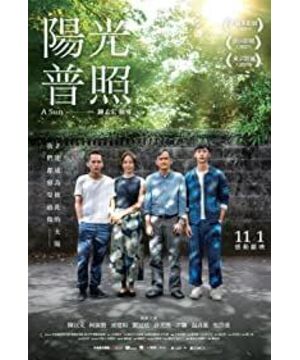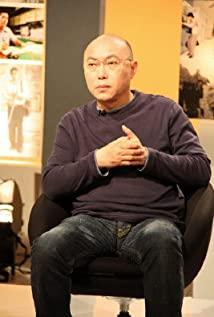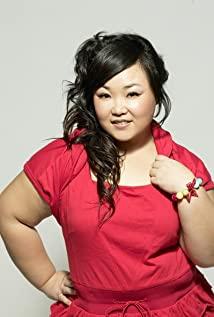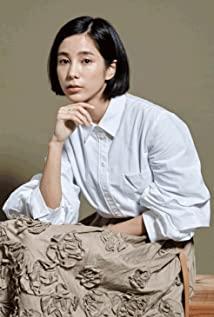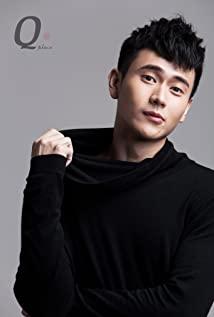one
Let's talk about the advantages of "Sunshine" first.
The characters written in "The Sunshine", no matter how big or small, are written roundly, richly, and "one is one".
His father, Awen, is an ordinary driving school instructor. "Mastering the time and mastering the direction" is the standard he believes in all his life, but ironically, he has always been talking about this sentence, but he has never been able to do it.
In the first half of the story, he did not grasp the direction well, and placed all his love and high hopes on his eldest son Ahao, but this father's love was too heavy and became a burden to overwhelm Ahao. , Awen was too cruel to admit it. When a driving school student asked Awen how many children he had, Awen always answered "one". In Awen's mind, Ahao was the radiant sun (just like the English translation of the film A Sun, Ahao is his A Son), A He is the shadow he turns a blind eye to and avoids.
The inequality of love has led to the disorder and disintegration of the family.
In the second half of the story, Awen's words became a prophecy. When there was really only A and a son left, he still didn't have a good direction. In order not to let Caitou destroy his already fragile family, on a rainy night, he kicked the accelerator and drove into Caitou and stoned him to death, which undoubtedly pushed the future of the family to a point of no return.
At the end, Sister Qin, who was sitting on the back seat of the bicycle, raised her head, and the warm sunlight shone on her face through the branches, clearly disappearing. It's a clarification from the director: While the family will move on in the sunshine, the bloody secret will turn into a shadow, clinging to them forever.
In Awen, we see how crude, tangled and complicated the silent father's love is in an eastern family.
In order not to talk to Ah He, he can live in the crowded office of the driving school for a month; he is small and lowly, and in order to keep Ah He from being threatened and endure humiliation, he gathers 200,000 yuan from his family to beg Caitou and raise his hand; , because Ah He didn't call him Dad after he came back, and he ignored him all the time; and recklessly, in order to protect Ah He, he did not hesitate to kill Caituan.
In the limited time and space of the movie, Awen achieved reconciliation with his son, sewed up the gap between father and son in his own way, but voluntarily chose to be swallowed by darkness.
Ahao's despair is the product of the radiation of deformed father's love. His death was unexpected and reasonable.
Ah Hao is the sun in everyone's eyes, "Good homework, good looks, everything is good... so powerful that I have only missed one thing in my life." ". However, the stronger the sun, the deeper the shadows. Ah Hao, who looks kind and optimistic on the outside, has actually been looking for the shelter of the shadows. The slightly weird story of Sima Guang smashing the tank he told Guo Xiaozhen was his silent cry for help.
He silently bears his father's preference, his younger brother's imprisonment, the pressure of repeating his studies, and the collapse of his family. Everyone tells him that he can't make mistakes, but even the closest person like his mother can't understand what he is really thinking.
There is a scene in the film that shows his isolation and helplessness: in the cram classroom, everyone was lying on the table to rest, but when Ah Hao woke up and looked around, the classroom was empty and no one was by his side. In addition, when Ah Hao told the story of Sima Guang's smashing of the tank, the director also matched a paradoxical animation, all of which hinted at the undercurrents surging inside his calm surface.
In the end, Ah Hao embraced the shadow in the way of self-destruction, and also left a ray of life for the dialogue and reconciliation between the family.
Ah He is the opposite of Ah Hao, he has been living in the shadows, longing for the sunshine.
In the first half of the film, Ah He presents himself as a problem teenager, stealing, intentionally hurting, fighting, impregnating underage girls... He has done all the bad things he can do.
The death of his brother Ahao and the birth of his child were the turning points for him to be born again. At Ah Hao's funeral, Ah He had no expression on his face, and the next scene followed Ah He's sudden emotional breakdown when he was pulling a cart in the juvenile nursing home, howling and running in the playground, until he was in the counseling room, Ah He's emotions did not calm down. Come down and open up to us. We see that there is a heart scarred under Ah He's stern eyes: "He (Ahao) is so powerful that I hate him more and more. They all say that I am bad and bad, but at least I am now. It's still here..." This emotional delay gave people a great shock, and the actor Wu Jianhe's interpretation was also a bit of a touch.
After being released from prison, Ah He began to work hard in order to support his family. The responsibility and responsibility made Ah He not only the literal "A Son" of his father, but also the psychological "A Sun". Ah He's forbearance and concession is also the process of him embracing the sun. He not only achieved reconciliation with his father, but also with his past self. At the end of the film, after learning of Caitou's death, his reckless running in the sun is in stark contrast to the wild running in the rainy night at the beginning. So far, the character Ah He has achieved a great reversal in character.
Caitou is the most embarrassing character in the whole film. He is not as lucky as Ah He, and has been extremely marginalized from beginning to end. He appeared on rainy nights and disappeared again, never seeing sunlight in his short life.
He cut off Heilun's hand for the sake of loyalty, but he was betrayed by Ah He during the trial. It is worth noting that at the trial site, Ah He and Caitou were opposite each other. Family members were sitting beside Ah He, but there was only one person on the other side of Caitou. Caitou stared at Ah He, with fear and disappointment in his eyes.
The balance of fate has not been fair from the beginning.
Caitou's second appearance is in the latter part of the story. He has transformed himself into a businessman, constantly looking for trouble with Ah He and instigating Ah He to do illegal activities. At this time, Caitou had gotten rid of the immaturity and passiveness of the year, and his eyes were full of sinister and murderous intent. Actor Liu Guanting's performance was very good. Several scenes between him and Ah He in the Bentley were full of tension, and it was shocking to watch. We were afraid that Caitou would ruin Ah He's life on the right track.
However, rather than saying that Caitou was deliberately retaliating, it was more like a desperate complaint. He didn't hold any grudge against Ah He for putting all his sins on him, and he didn't regret the knife he cut back then. What he was brooding about was, why didn't Ah He see him after he was released from prison? Why didn't the Chen family help his grandma when she was driven to the nursing center? It's a pity that no one cares what Caitou thinks. The 200,000 yuan that Awen brought is a sharp expulsion order, which is tantamount to ordering Caitou to get out of Ah He's life.
In the climax of the crash on the rainy night, we saw the loyalty in Cai Skull's bones. Because Ah He told him that he explained to the boss for a long time because Caitou smoked in the car last time, so this time Caitou wanted to smoke. .
The heavy rain washed away Awen's sins and washed away the traces of Caitou left in the world.
Caitou used his own sacrifice to fulfill Ah He's family, but in the end he only got a sentence from Ah He, "Cai Tou is a person who has been making trouble for me".
With a calm and restrained attitude, director Zhong Menghong uses the pen as a knife to peel off the layers of the bizarre life for us, the essence of family relationship - mutual fulfillment and mutual reconciliation. These accomplishments and sacrifices are sometimes not glorious. They will be mixed with selfishness, lies, and even darkness and blood. Just as where there is sunshine, there must be shadows. But it is precisely because of these silent accomplishments and sacrifices that the difficult gaps are sewn up, giving a family the courage to continue living.
This is the unanswerable proposition that life throws at each of us.
two
Let's talk about the shortcomings of "Sunshine".
There is no doubt that the film's cinematography and soundtrack are excellent. The director's grasp of light and dark tones not only fits the theme, but also ingenious. In the paragraph of Ahao's confession, the imagery of the group of empty city mirrors can be called colorful.
For the soundtrack, Taiwanese musician Lin Shengxiang, who previously performed the soundtrack for the Golden Horse Award hit movie "Big Buddha Plus". This time, the performance in "The Sunshine" is also very stylized. For example, at the beginning of the film, the bloody and violent scenes are matched with Lin Shengxiang's soothing and gentle soundtrack, which is full of absurdity.
However, these roles in plot narrative and theme presentation have largely given way to lines. Especially in the climax of the film, the truth of "Caitou's death" is revealed by Awen's meticulous and thorough explanation. Although it is more than shocking, the aftertaste is not enough, and even has a bit of a Taiwanese drama tone.
In the film, whether it is A Wen, A Hao, or A He, the golden sentences appear frequently. For example, Ah Hao said, "The most fair thing in this world is the sun. No matter the latitude, every place has half the time of day and half of the whole year... I have no water tank, no dark place, only sunshine, 24 Hours are uninterrupted, bright and warm, and the sun shines.” Another example is Awen’s saying, “Life is constantly 'grasp the time and grasp the direction'. Sad things will always pass and be forgotten. I always feel that life is like a On a road, as long as you hold the steering wheel in your hand, stop when the light is red, start slowly when the light is green, drive steadily, and the road of life will be safe.” Although these golden sentences are all the life insights of the characters from the bottom of their hearts, they also almost directly reveal the spiritual core that the film intends to convey, making the film a little bit of missionary flavor.
Chinese classical art pays attention to "leave blank" and pursues "extra rhythm". If the characters' lines can be said and given more room for the camera and music to play, the artistic conception of the film will be improved.
Secondly, "The Sunshine" not only tells an oriental family fable, but also touches on many social real problems, such as juvenile violent crime, underage women's pregnancies before marriage, juvenile mental health problems, and reemployment of prisoners.
However, the creators obviously have no intention of in-depth discussion on these issues, and just point to them, making them either a tool to assist the narrative, or a gimmick that turns the film into a spectacle.
For example, as soon as the film came out, Caitou chopped off Heilun's hand, and blood splashed for a while. The close-up of the hand sank slowly in the hot pot was shocking; She was rejected when she was looking for the first two jobs, but when she went to the car wash for the third time to find a job, she found it smoothly. Another example is that the underage Xiaoyu accidentally became pregnant with Ah He's child. Complaining not only gave birth to a child in spite of her opposition, but also gave up her determination to marry Ah He, who was still serving a sentence and had no knowledge of it.
How can prisoners face the dilemma that they are difficult to be accepted by society? What about the living conditions of teenage mothers? The film does not face these questions too much, but replaces the cold thinking of these sharp real contradictions with love and reconciliation.
Of course, we should not ask that a realistic film must point out solutions to certain problems, but an excellent work cannot be satisfied only with the use of realistic elements. In this way, the thickness of the film will also vary. damaged.
Thirdly, in terms of movie viewing experience, there is a clear sense of separation before and after the movie, which is a side effect of a blunt switch in movie genres. From the first half of the film to the appearance of Caitou, the narrative rhythm of the film has always been calm and restrained, not impatient and impatient, giving us the visual experience of Yang Dechang's "Yiyi" general life-style work (and indeed some people think "The Sunshine Shines"). " and "One One"), all the "needles" of life are hidden in this layer of warm "cotton". After the appearance of Caitou, the type of film began to quickly move towards crime films, which combined commercial elements such as revenge, underworld, illegal illegal goods, and destruction of corpses, which made people jump.
But in this way, the realistic texture carefully constructed by the film is very weak, and it is difficult for people to produce a sense of smoothness in one go.
three
Director Zhong Menghong also put aside a few slightly abrupt idle strokes in the film, which are worth pondering.
One is when Ah He married Xiaoyu, everyone in the room was frowning, but the dumb-looking female staff member fired a small salute, startling Sister Qin and the sleeping baby. The ribbons sprayed from the salute were still hanging on her glasses, making people laugh.
This cannon salute has little practical effect on the surface, but it adds an anachronistic sense of humor to the dreary and depressing atmosphere.
The other is in the classroom, where Ah He was informed that he could be released from prison, and other prisoners sang a song of Zhou Huajian's "Flower Heart" to Ah He. At first, there was only one person singing, but more and more people joined later. At this time, the piano sound gradually sounded in the background music, and the sunlight and singing that were about to overflow the screen condensed together, forming the dark and chaotic life of Ah He. One of the few heartwarming scenes.
Welcome to pay attention to the personal public account "iSeaCat", and update film reviews from time to time.
View more about A Sun reviews


